Expanding in the Face of COVID-19
Day in and day out – rain or shine – the Food Bank’s network of neighborhood food pantries helps us provide food to the community. They are the cornerstone of our outreach. While nearly a third of our pantries had to close due to a variety of COVID-19 related challenges, many remain open and are also serving more people than ever before.
One of them is the pantry at Sunnydale Housing. Here, a committed group of long-time volunteers made extended service to their community possible. The pantry is run by Visitacion Valley Strong Families (VVSF), a collaborative lead by APA Family Support Services with three other community-based organizations: Edgewood Center for Children and Family, Samoan Community Development Center (SCDC), and the Asian Pacific American Community Center (APACC).
COVID-19 Brings Added Challenges
Before COVID-19, the pantry served approximately 200 households, mostly locals from the neighborhood. Now, according to Program Director Jack Siu they are serving more than 300 people from all over San Francisco. They work hard to ensure no one gets turned away.
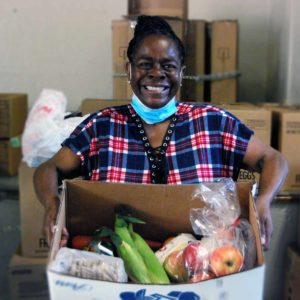 “We always try to have extra bags if people come late, or if they didn’t know about the pantry,” said Mary Ann Pikes, who is one of the volunteer leaders who has come since 2012. “It’s amazing how many people who live here never knew about the pantry. But I can understand, it’s because they were working every day.”
“We always try to have extra bags if people come late, or if they didn’t know about the pantry,” said Mary Ann Pikes, who is one of the volunteer leaders who has come since 2012. “It’s amazing how many people who live here never knew about the pantry. But I can understand, it’s because they were working every day.”
As she points down the street to show where the line used to end compared to where it ends now, she predicts that they will soon need to start ordering more food to meet the growing need.
Sunnydale is a historically neglected public housing area with a particularly high rate of poverty – the average annual household income is only $13,487. Prior to COVID-19, VVSF was running several programs for families in the neighborhood. But now those can’t operate. “Right now, we are focused on basic needs: food, diapers, and clothing,” said Jack.
For local residents who were already struggling, COVID-19 is making things that much harder. Mindy, who has come to this pantry since 2014, explained that with a husband and two teenage sons at home, she goes through food quickly. “They eat a lot as they are getting older.” The pantry always helped her save money and made sure the family got enough to eat.
Now, with the virus, members of Mindy’s family are unemployed, so the fact that her neighborhood pantry could remain open is a huge help. “Beyond just the unemployment, we don’t want to go out to expose ourselves, so coming here is close and easy.” Only half-joking she adds, “but if we could do it twice a week that would be the best.”
Meeting People Where They Are
Long before COVID-19 brought the vulnerability of seniors into our collective consciousness, this pantry started a grassroots effort to deliver food to disabled seniors in their neighborhood.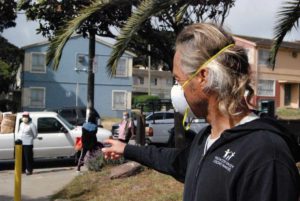
“About seven or eight years ago, I said ‘if we are going to do this food pantry, let’s get food to the people who need it most,’” said Tim Gras, who works for Edgewood Center and spearheaded the delivery project. He explains, “there was a need and we had a vehicle.”
They now deliver to about 70 people a week and have a long waiting list. “It’s a challenge in this neighborhood because many people qualify for disability and we can’t take this to the hundreds and hundreds of people who we’d like to,” said Tim. “You’ll see at the end of the day our truck will be teetering.”
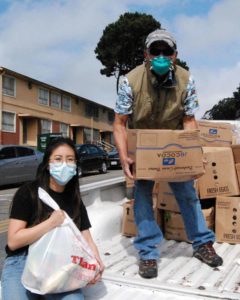
While the team does have concerns about their health and safety, they are committed to serving their community despite the pandemic. Reflecting,
Tim acknowledges, “in these neighborhoods, just day to day living can be really challenging. Folks are trying to follow guidelines, but it is kind of a different reality in a lot of these public housing neighborhoods.”
For him, if there is an opportunity to help, he is ready to do it. “We are going to keep trying. It is a really critical and necessary service, so we keep trying”
Helping Neighbors
Prior to the pandemic, the pantry was a chance to socialize and catch up with neighbors. Local organizations used to bring coffee and do small cooking demos for volunteers and participants. Now, it’s a different story. While everyone misses that, it isn’t going to keep them home.
Jack sees this commitment with all the volunteers. “They are more motivated than ever. They are still here, and they come so early. They want to help others,” said Jack.
Get Involved
Learn more about Visitacion Valley Strong Families and support their neighborhood pantry.
Learn More


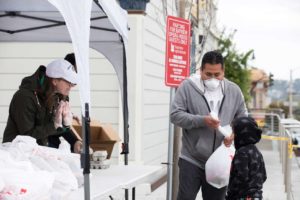 “I haven’t worked in a month,” said Doaldo, who worked in restaurants before the pandemic. “We don’t have money for food or anything.”
“I haven’t worked in a month,” said Doaldo, who worked in restaurants before the pandemic. “We don’t have money for food or anything.”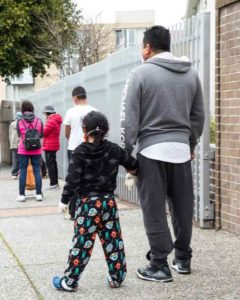
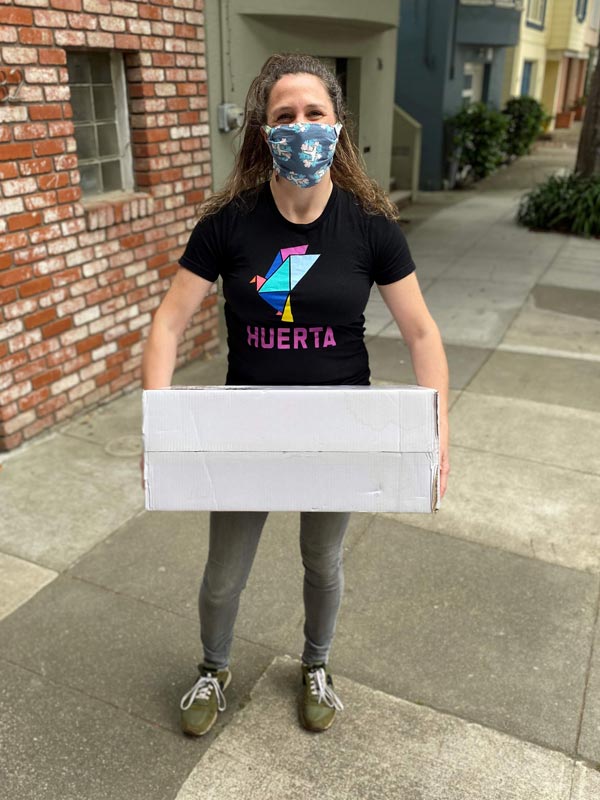
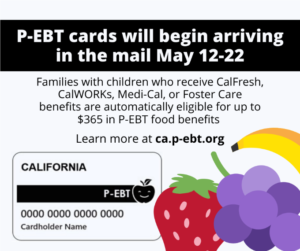
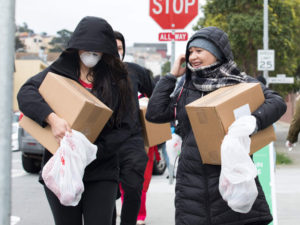
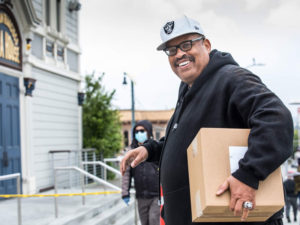
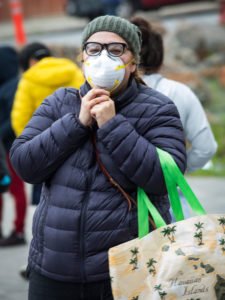
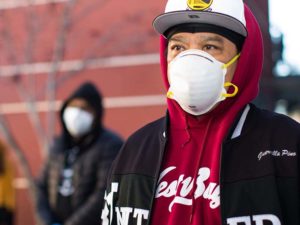
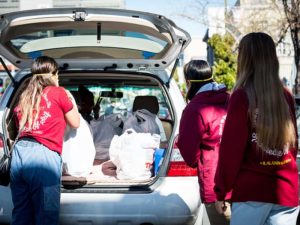
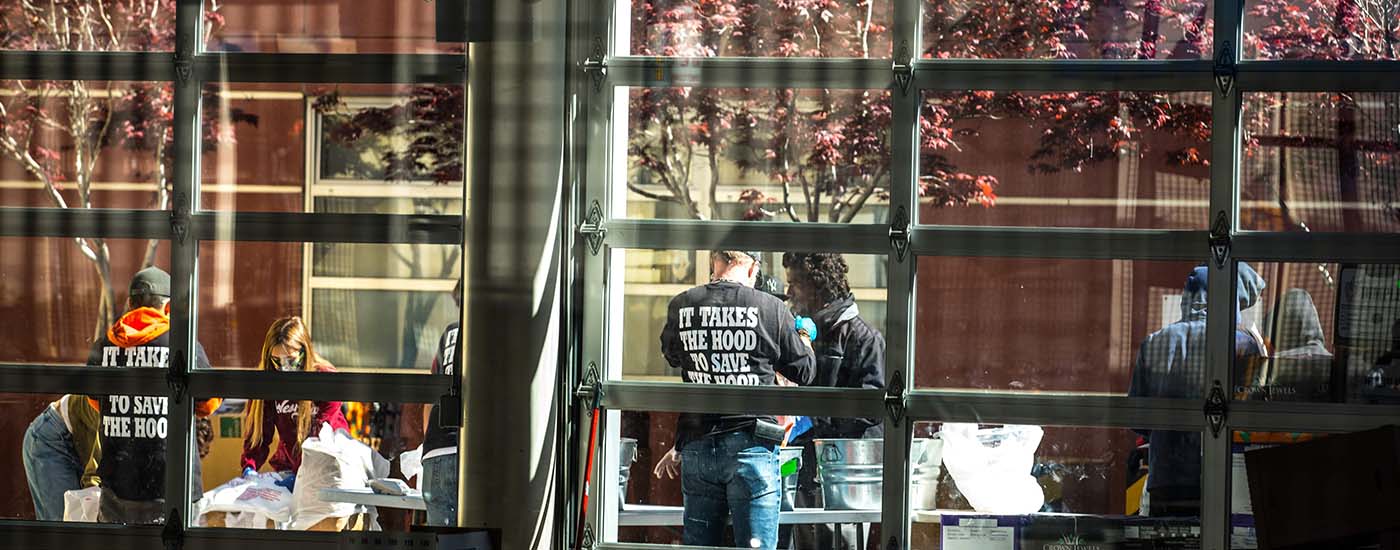
Share